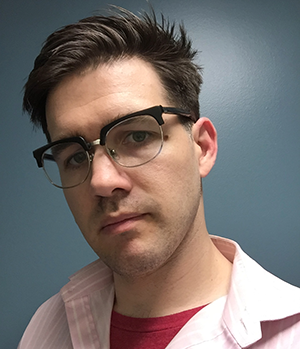
I am a graduating Ph.D. student in computer science, specializing in machine learning on social networks. I was very fortunate to receive the support of AccessComputing to attend the Web Conference in Lyon, France. Attending this conference allowed me to build new connections and collaborations during a crucial time when I transition to a career in industry research.
The Web Conference is a unique and valuable experience for students of many different backgrounds. In recent years, it has become a top venue for research in large-scale machine learning. However, it has strong communities in accessibility, security and privacy, and human-computer interaction. They also co-host the Web For All Conference, which focuses on developing accessible features and websites with respect to disability, socioeconomics, and other barriers. Due to this co-located event, the Web Conference itself also has better disability accommodation than similar top-tier conferences, both onsite and providing relevant local information. Outside of the Tapia Conference, I feel the Web Conference is the most diverse and valuable to students with disabilities who are in the relevant areas of computing.
The conference also hosts many sponsors and industry partners recruiting students at all levels. I was able to make direct contact with recruiters and researchers from Amazon, Facebook, Yahoo! Research, and Walmart Labs. Due to this, the conference is a great opportunity for masters and Ph.D. students, as well as undergraduates considering graduate school. There are several applied research tracks that are suitable for more junior students, including the "Web and Society" track, which focuses on empirical studies of websites and social networks, and recent emerging problems such as bias in machine learning, online abuse, and journalism and misinformation.
I presented my research in the BigNet International Workshop on Learning Representations for Big Networks. The workshop was very well-attended, in part due to notable keynote talks by Jon Kleinberg and Jure Leskovec. The research in this workshop focused on how to extract higher‑order information from networks (e.g. using deep learning) for recommender systems, knowledge-bases, or biological networks. These alternative representations mitigate some complexity of networks to build better predictive models, but are still not well-understood.
During my time in Lyon, I was largely focused on my work for the conference, and meeting a few closer colleagues. When I travel, I tend to meet many different groups of colleagues, and take time with them to see the city. These have been very important experiences and connections later on. However, the focus was very fruitful. This yielded good presentation slides, and a small breakthrough on research.
I am looking forward to attending future Web Conference iterations and facilitating junior students to attend as I work with the community in industry.